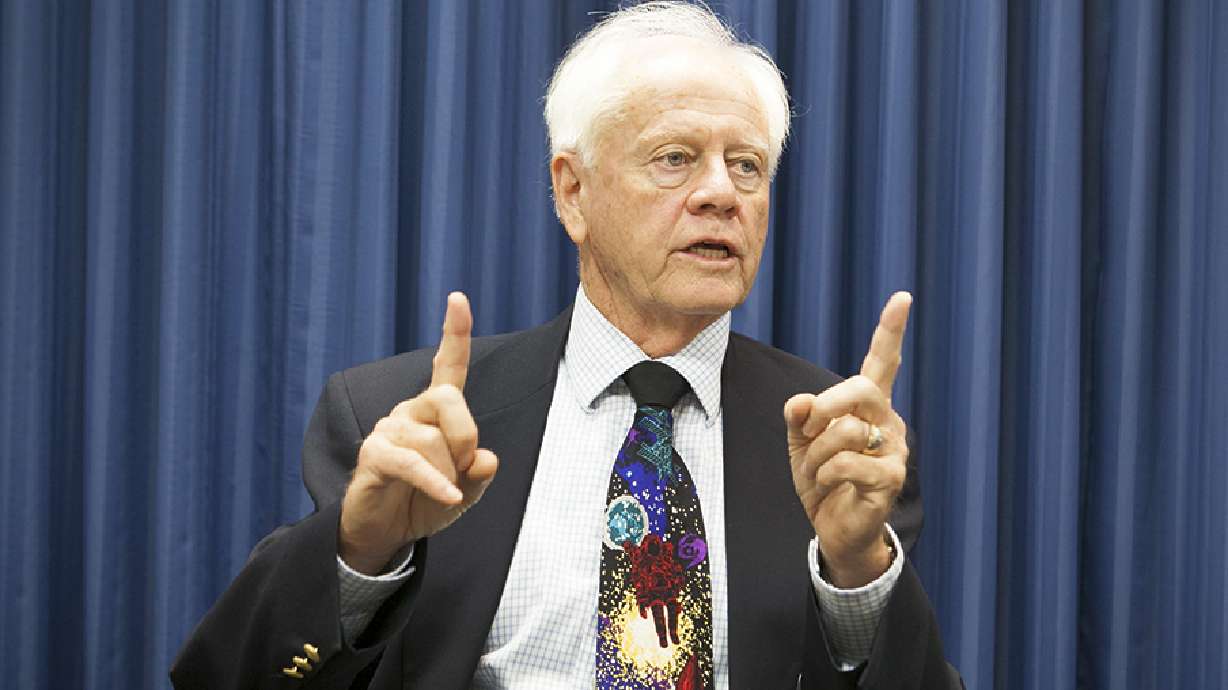Estimated read time: 4-5 minutes
This archived news story is available only for your personal, non-commercial use. Information in the story may be outdated or superseded by additional information. Reading or replaying the story in its archived form does not constitute a republication of the story.
OGDEN — Allan McDonald, the whistleblower and engineer sent by contractor Morton Thiokol to approve the 1986 Challenger space shuttle launch but who refused to sign off, has died in Ogden at age 83, according to NPR.
McDonald was overruled by NASA and company management prior to the Challenger explosion 73 seconds after its launch on Jan. 28, 1986; all seven astronauts aboard were killed, including schoolteacher Christa McAuliffe, who was to be the first civilian in space.
McDonald's family said that he died on Saturday in Ogden following a fall and suffering brain damage, NPR reported.
McDonald worked as an engineer for NASA contractor Morton Thiokol, the company that helped build the space shuttle's solid rocket boosters at its northern Utah plant. McDonald was responsible for the two booster rockets and was sent to Kennedy Space Center in Florida before the launch of the Challenger space shuttle, tasked with signing off on the launch.
But McDonald had reservations regarding the launch, as did other Morton Thiokol engineers in Utah. McDonald cited three concerns, according to NPR: "freezing overnight temperatures that could compromise the booster rocket joints; ice forming on the launchpad and spacecraft that could damage the orbiter heat tiles at launch; and a forecast of rough seas at the booster rocket recovery site."
The temperatures were expected to drop the night before the Challenger launch to just 18 degrees.
During a conference call with NASA on Jan. 27, 1986, multiple engineers on McDonald's team refused to sign off on the launch. The sign-off was a needed step in the safety protocols. McDonald later recounted that after some pressure from NASA, the engineers' concerns were overridden and his boss instead signed off on the launch.
"Normally we were always challenged to prove it was safe to launch," McDonald said in "Challenger: The Final Flight," a recent Netflix documentary. "Now all of a sudden we got the impression they were asking us to prove it would fail, and we couldn't do that."
The launch went ahead as scheduled and lasted only 73 seconds before breaking apart, killing all seven on board. An O-ring failure allowed pressurized burning gases to break through a joint, causing one of the booster rockets to spin out of control and the orbiter to break apart, an investigation revealed.
A presidential commission was held where a NASA official said that Morton Thiokol had some initial concerns but ultimately approved the launch. McDonald, who was present at the commission, thought this statement deceitful and spoke up revealing that the engineers had been overruled.
"NASA finally said, 'Al, we'll pass this on in an advisory capacity,'" McDonald told the Los Angeles Times about the launch decision in 2016 when he donated his papers to Chapman University. "And I said, 'Let me tell you something. I sure hope nothing happens tomorrow, but if it does, I am not going to be the person to stand in front of a board of inquiry and explain why I gave you permission to fly my rocket boosters in an environment I knew they would never qualify to fly in.'"
The focus of the commission's investigation shifted to the booster rocket O-rings, and the concerns and efforts of McDonald and his engineers to stop the launch which were ignored by NASA officials. McDonald's comments to the commission led to him temporarily losing his position with Morton Thiokol, being demoted.
The presidential commission was alarmed at Morton Thiokol's decision to punish McDonald and introduced a joint resolution that threatened to prevent Morton Thiokol from receiving further contracts from NASA. Given the commission's threat, Morton Thiokol promoted McDonald to vice president and tasked him with improving the rocket joints that failed during Challenger's launch.
McDonald retired from Morton Thiokol in 2001 and later co-authored a book titled "Truth, Lies, and O-Rings: Inside the Space Shuttle Challenger Disaster." He also went on to speak and lead ethical decision-making and leadership seminars with Mark Maier of Chapman University, who produced a documentary about the launch decision.
"What we should remember about Al McDonald (is) he would often stress his laws of the seven R's," Maier told NPR. "It was always, always do the right thing for the right reason at the right time with the right people. (And) you will have no regrets for the rest of your life."









